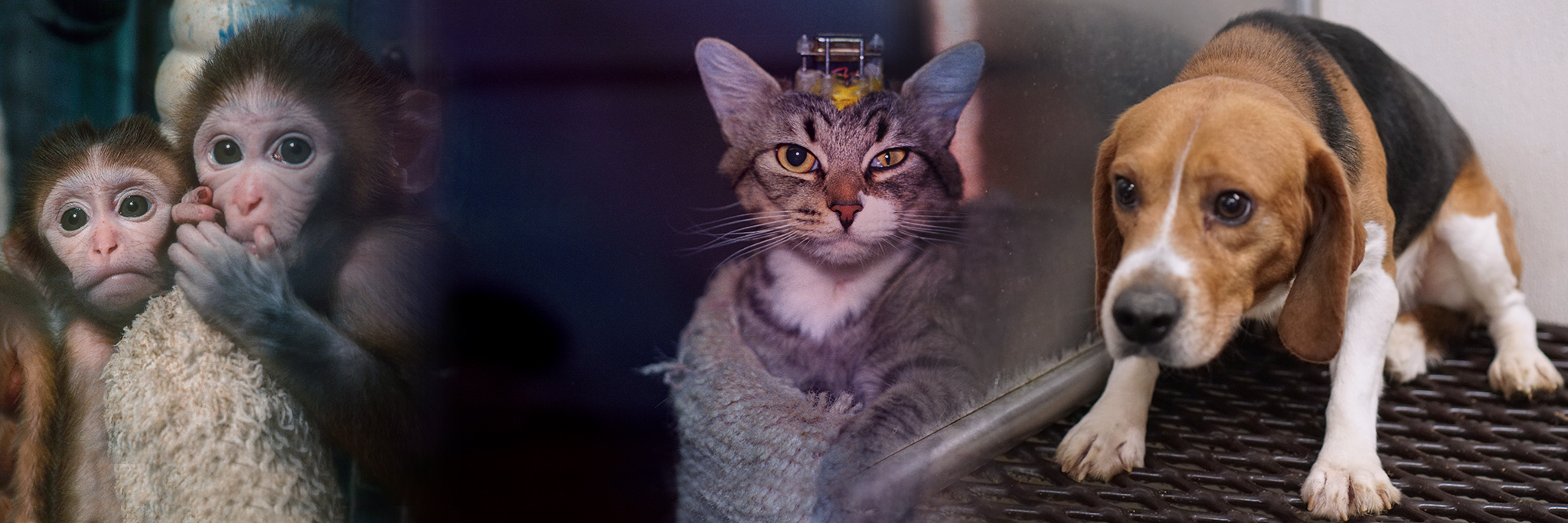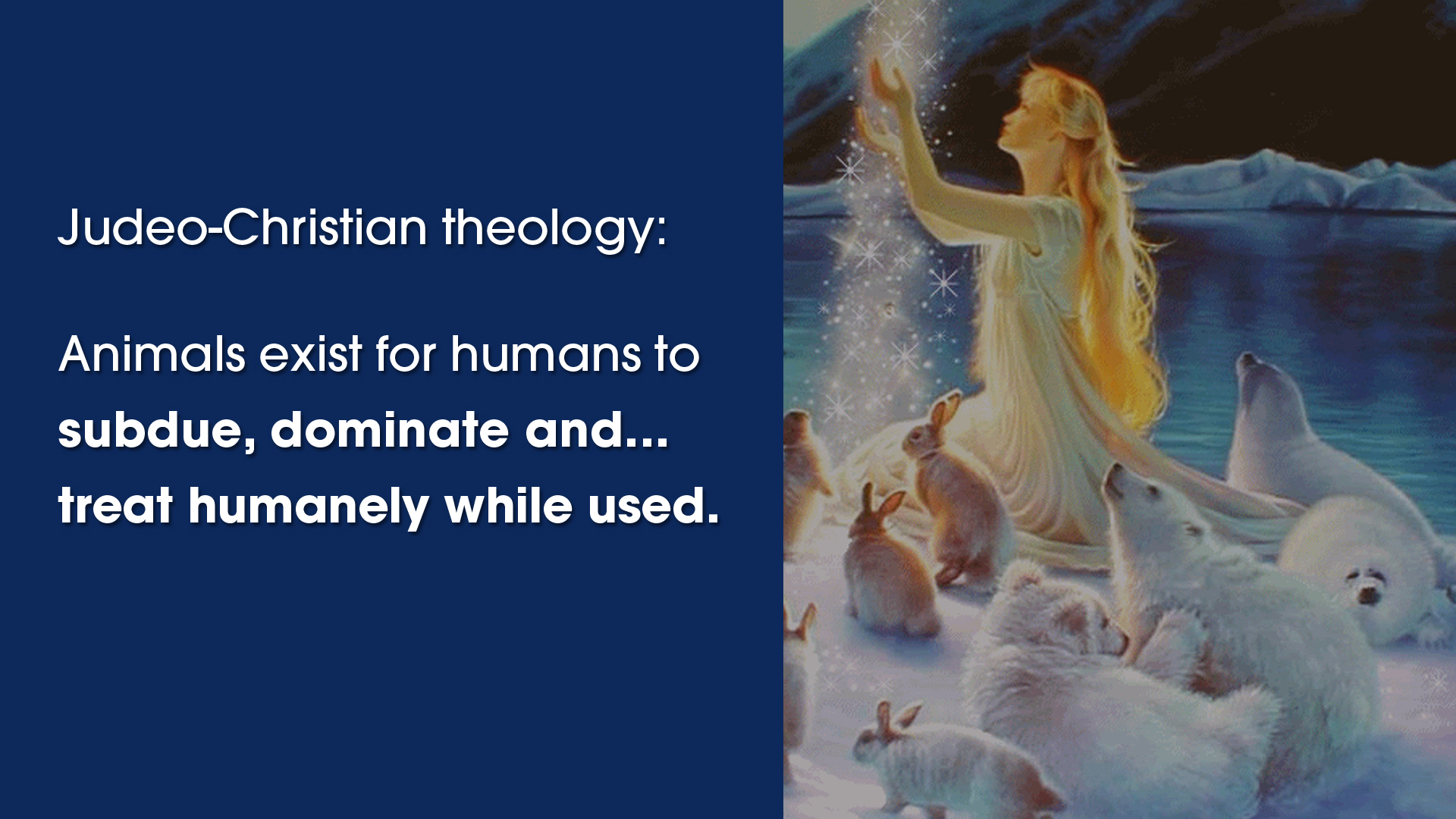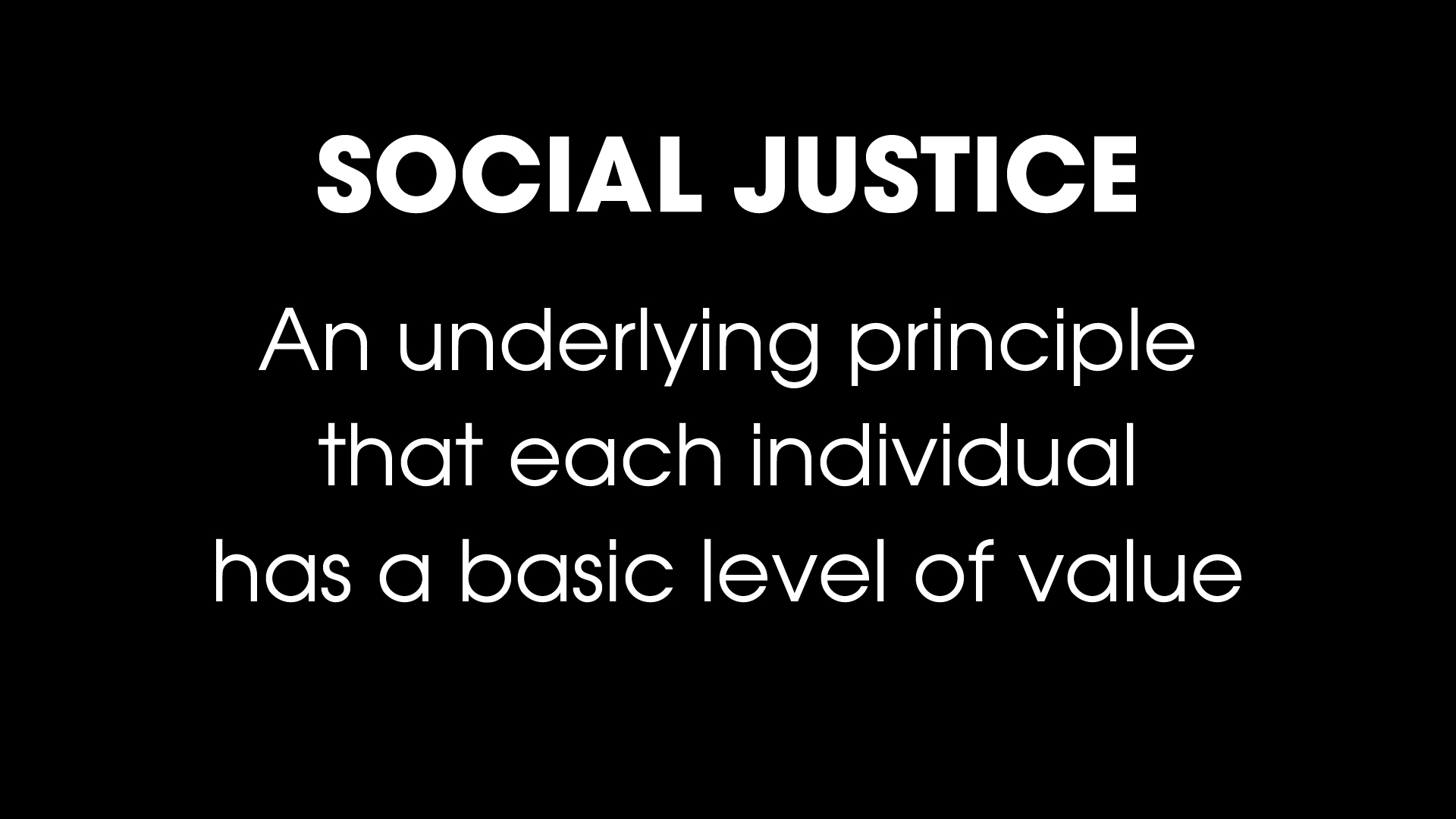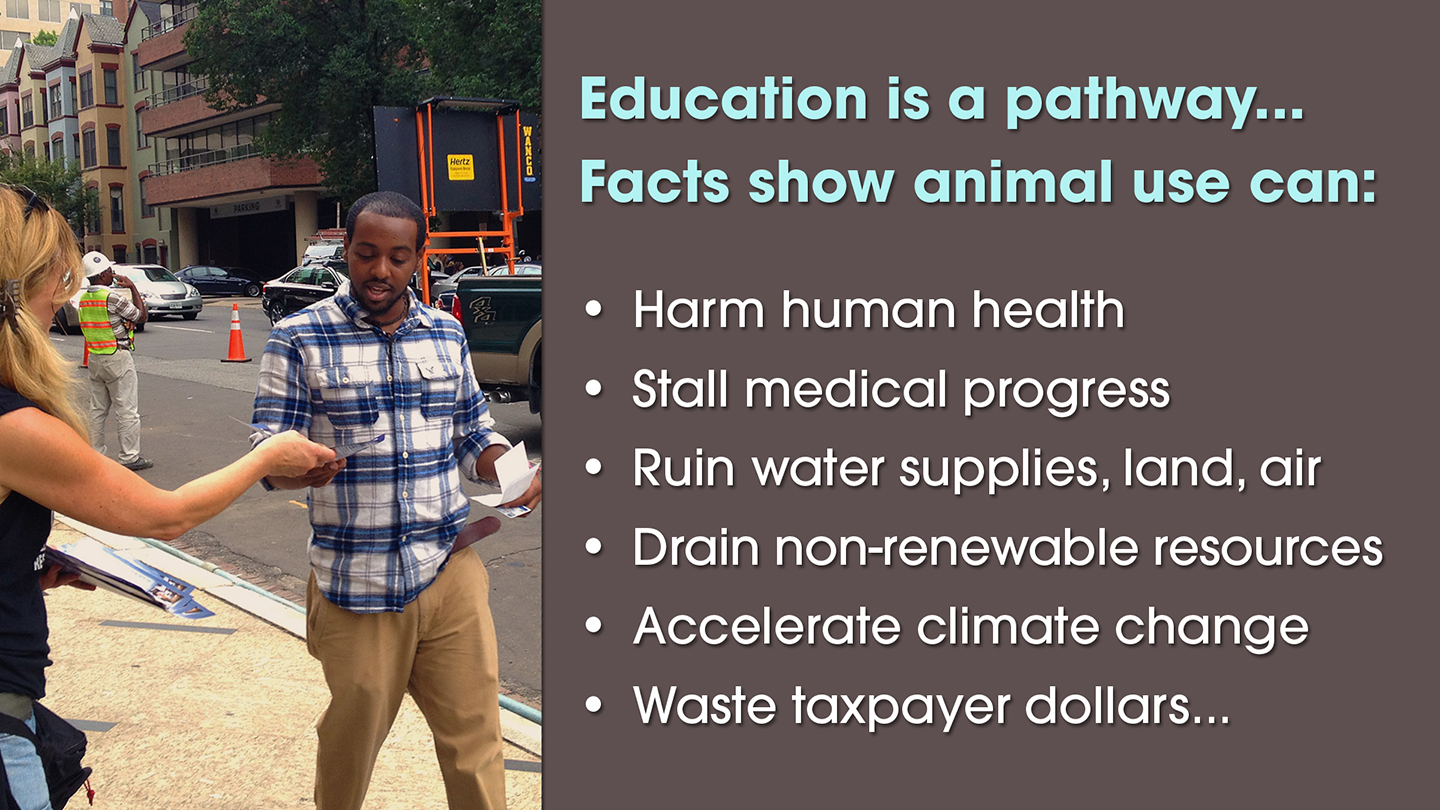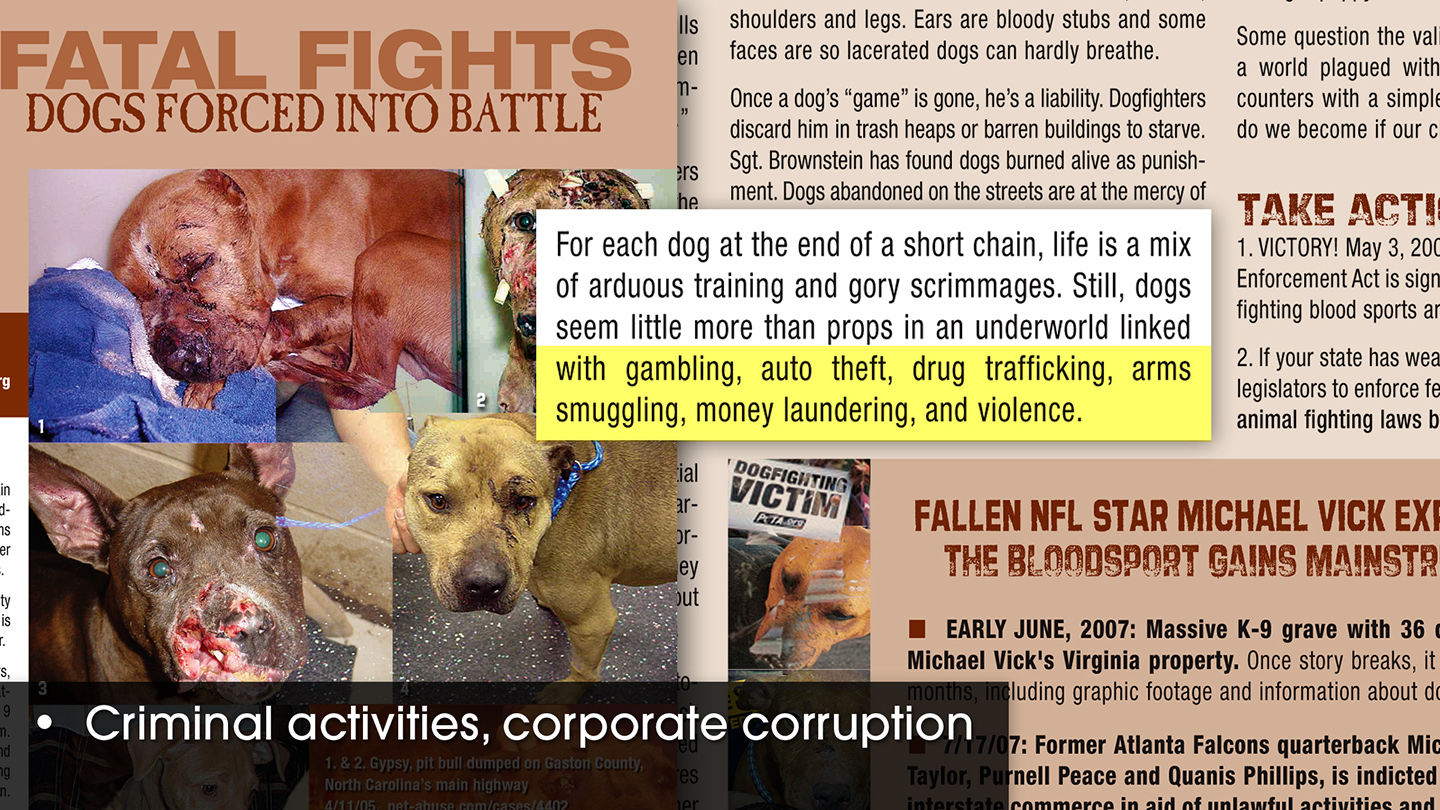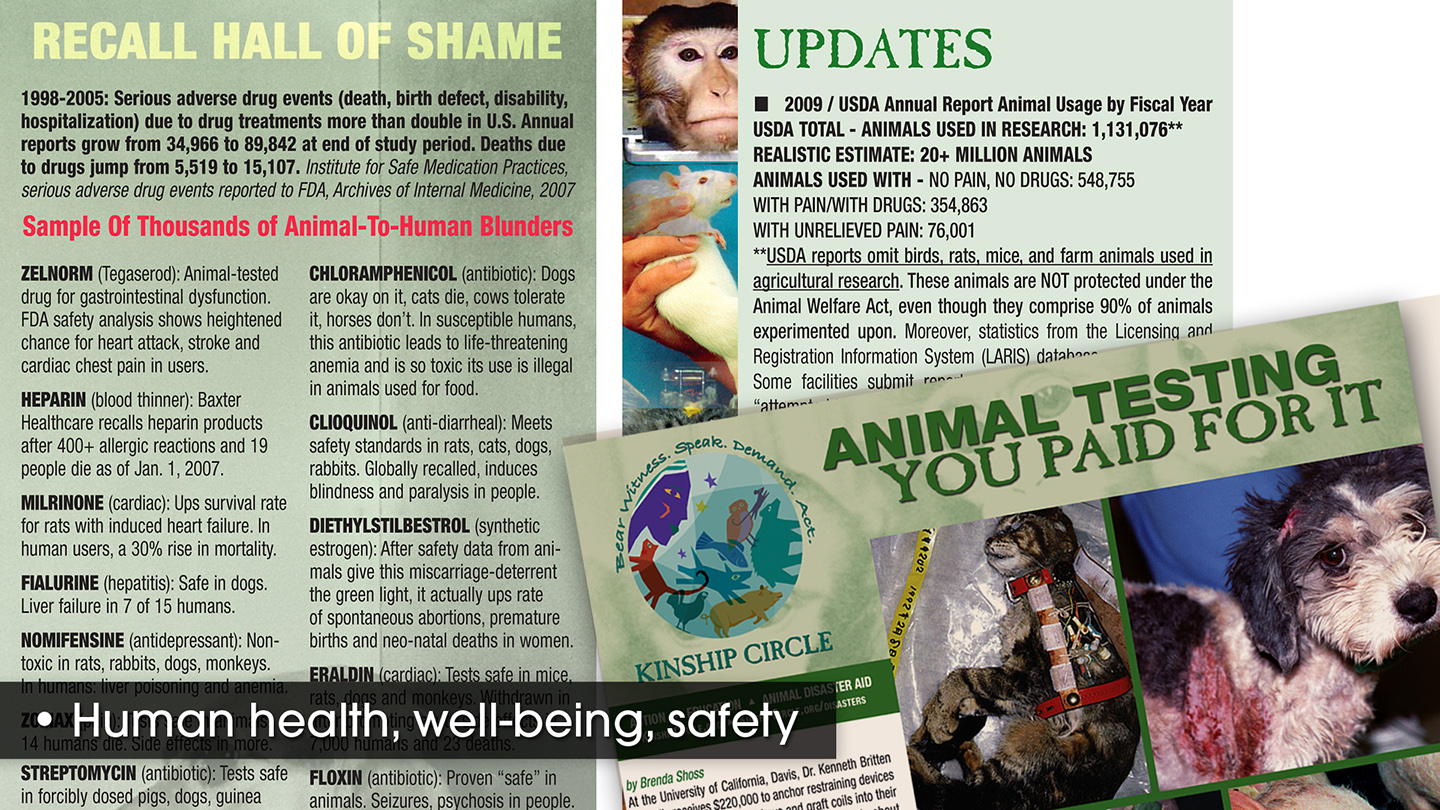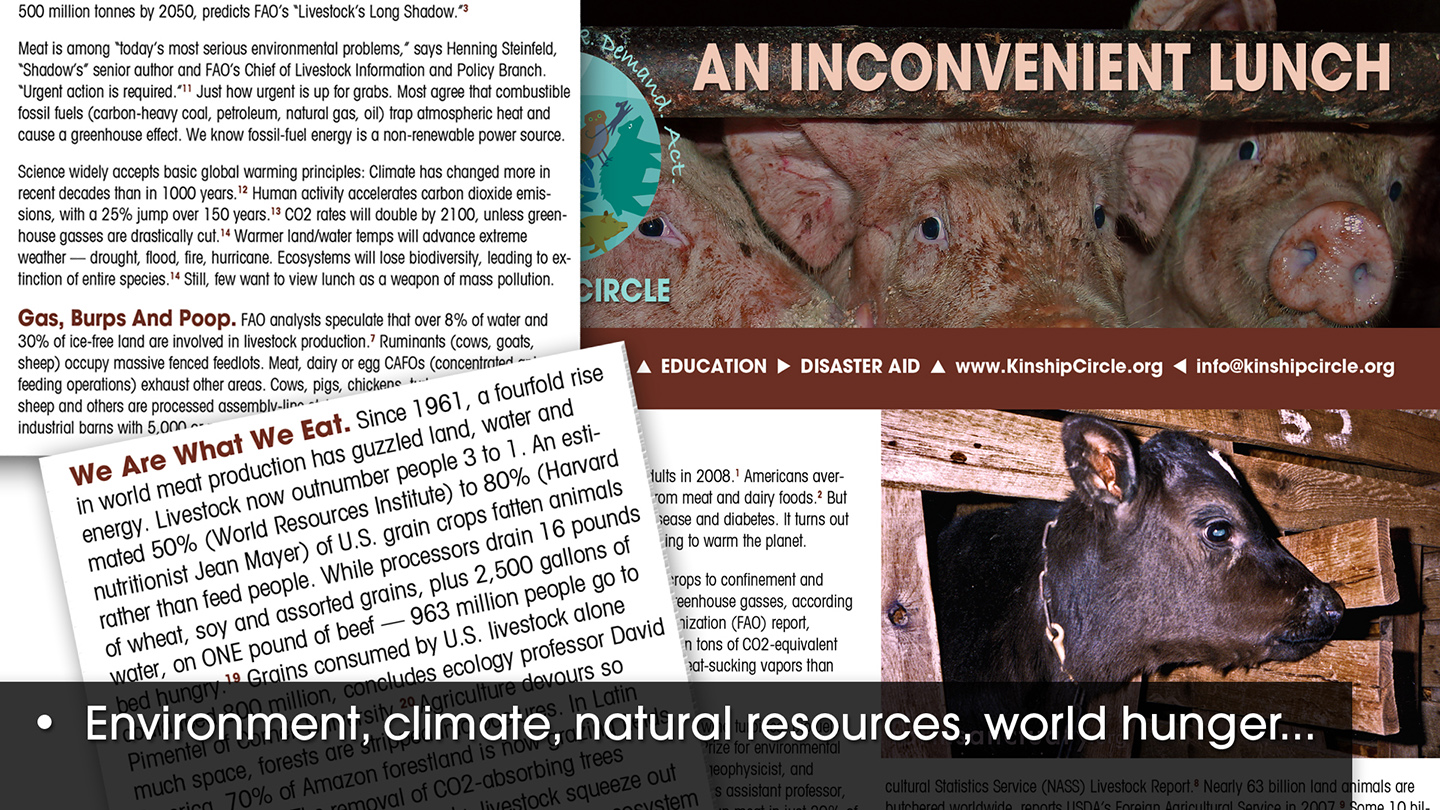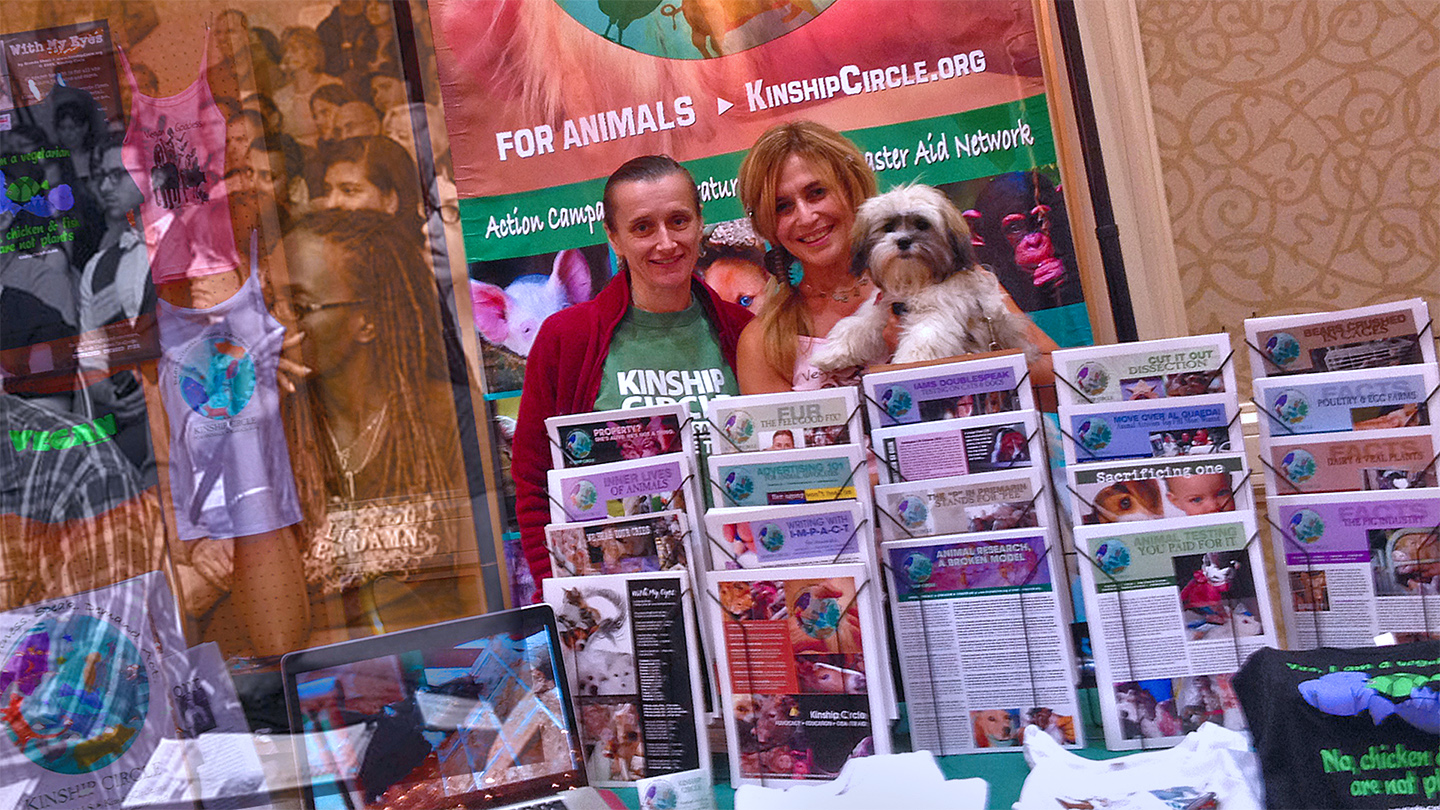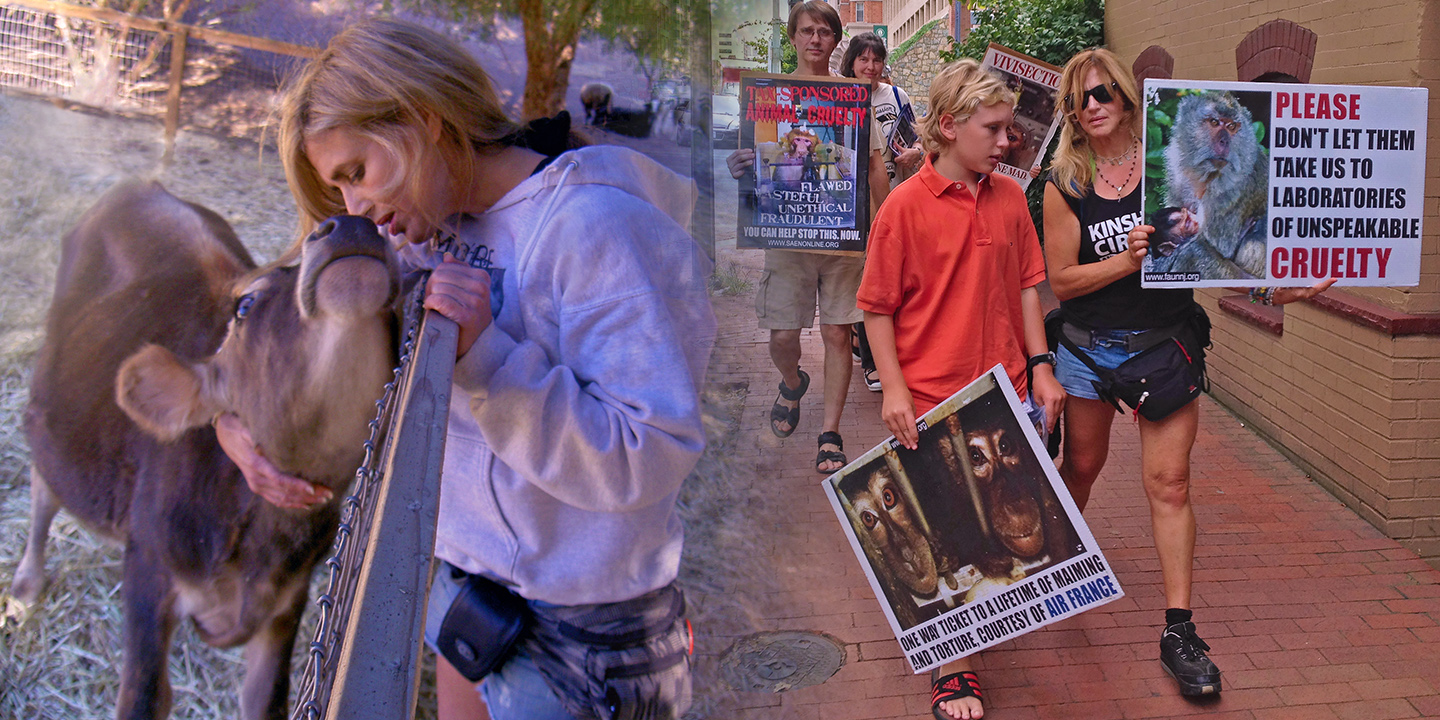For a self-styled superior class to maintain power, others are judged inferior and dominated by force and subjugation.
The same framework that lets human supremacy own and kill animals, lets white male Christian supremacy persecute “lower value” humans. Social constructs based on species, race, ethnicity, religion, gender or sexual orientation are false artifacts. We seek self-will, rights, and equity for all animal and human beings. We oppose acts of cruelty, violence, bigotry and hate.
Kinship Circle
Just The Facts PleaseDominion, Property & Truth. This movie expresses Kinship Circle's core beliefs on animal use and abuse, plus how to argue against it with logic and credibility.
Self-Will & EquityBasic Moral Justice. As a human being, you have a fundamental right — though flawed by social injustice and systemic inequality — to not be enslaved, tortured or murdered. Yet 8.7 million other species have no standing within a primary code of ethics. By law, animals are property. By Judeo-Christian ethic, animals exist for human use. It's hard to fight for absolute compassion in a world that objectifies nonhuman animals, blind to each individual's self-interest, character and will to live. Animal rights ought to be recognized, within the greater heirarchy of discrimination and power imbalances, by one simple truth: Animals are here with us, not for us.
Unfortunately, this concept lacks traction in human-centric society. In the meantime, billions of animals suffer daily in usage industries such as meat/dairy, entertainment (zoos, aquariums, rodeos, exhibits), animal experimentation, hunting, fur/leather… A more prompt rationale focuses on humans’ fav topic: themselves. Present facts about how animal-free choices for research, food, household goods…are more human-focused, health-conscious, economic, and climate-safe. Kinship Circle educational materials use studies, stats, quotes and news to show how animal use harms people, along with animals. This movie gives tips to make your own literature, or choose the right stuff for optimal impact.


